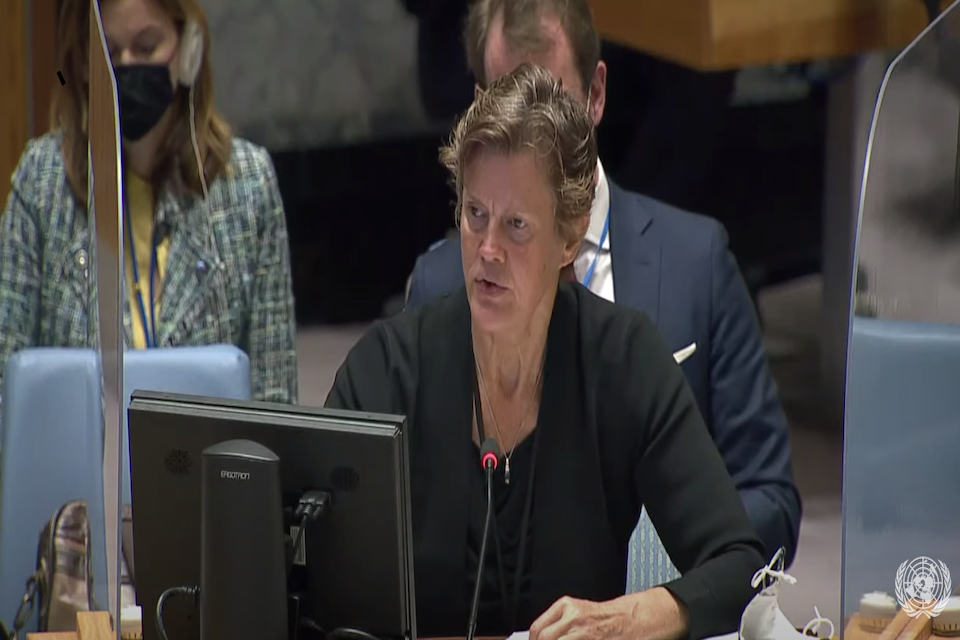Embed peacebuilding approaches now to avert humanitarian crises later
Statement by Ambassador Barbara Woodward at the Security Council briefing on peacebuilding.

Mr President, your Excellency President Kenyatta – thank you for convening this timely and important debate. The UK values our close cooperation with Kenya on the issues brought to the Council. Thank you to our distinguished briefers for sharing their experience and distilling into insightful comments for us today..
Today’s topic is a pressing one. Economic pressures, a global pandemic, and climate change have put unprecedented strain on the social contract that holds states together.
The United Kingdom believes in open societies. We value human rights; inclusion; gender equality; and free expression. Open societies respect identities and differences as integral aspects of community and not as forces for division. Our experience is that societies are more strong and stable when we embrace diversity.
History has shown us what happens when identity is weaponised – from Bosnia to Rwanda.
Mr. President, I want to support this important debate by offering make three points: why the Council should be concerned when identity is used to stoke conflict; why inclusivity matters for peacebuilding; and how to more fully advance the use of UN peacebuilding tools.
Firstly, Mr. President, we know the danger of identity-based incitement. It marginalises already vulnerable populations; fuels extremism; manifests in human rights violations; and sparks war. The Council with its responsibility for peace and security has an obligation to call it out – and end the protection of states that choose to ignore warning signs. In Myanmar, exclusion of the Rohingya population has escalated into systematic violence and forced displacement. In Ethiopia, identity politics and hate speech are dividing communities, exacerbating a conflict that has already pushed 400,000 people into famine. This Council should not stand by as violence escalates. We should heed the warnings of humanitarians on the ground. Second, inclusion is central to peacebuilding and makes states more resilient to shocks. As we have heard so clearly from all of our speakers today, from the lessons of Rwanda to the situation of Afghanistan,peace processes that include the warring parties, civil society actors, and women’s groups strengthen national ownership. Third, as other speakers have mentioned, the UN has a range of tools to support countries that are struggling with identity-based violence and are committed to pursuing peace. In UN Peace Operations, human rights monitoring is a critical early warning function. UN political leaders, mediators and advisers facilitate inclusive peace processes to build sustainable peace.
The Peacebuilding Commission supports countries grappling with their peacebuilding challenges, while the Peacebuilding Fund – to which the UK remains a major donor – provides catalytic funding to encourage these efforts.
But as you said President Kenyatta, the system can do a better job of getting ahead of threats to peace. Peace and development are mutually reinforcing, and many of the tools to build sustainable peace live in the UN development system. We urge the development system to embed peacebuilding approaches now, to avert humanitarian crises later.
Mr President, to conclude, identity does not need to be a source of violence, but a source of pride. By supporting diversity, we can build stronger national and international bonds, and open, resilient, and prosperous societies. Thank you.